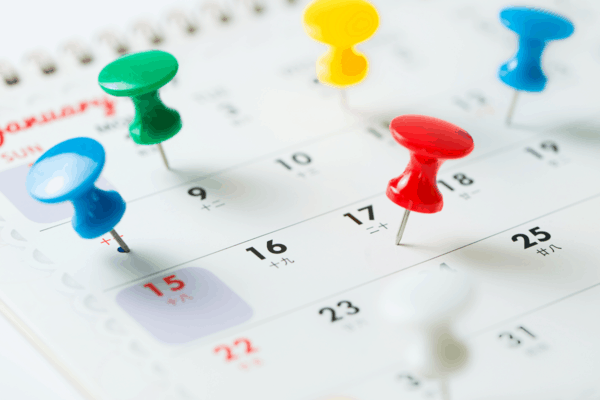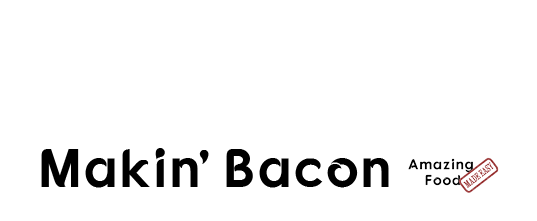 Written by Jason Logsdon
Written by Jason Logsdon
How to Write a Selling Cookbook Proposal with Sally Ekus
Click to discover how to serve your Fans and grow your incomeThe most important factor that leads to you getting a good cookbook deal isn't the amount of fans you have, it's not who you are as a blogger, and it's not your cookbook idea. It's how good of a cookbook proposal you write.
There's a lot that goes into it and Sally Ekus is here to step us through what we need to know.
Once you decide to write a traditionally published cookbook, you need to find someone to publish it. The first step is usually to find an agent and to do that, you're going to need a cookbook proposal.
There's a lot of different things that go into it and you want to make a good impression. In a recent podcast interview, I talked to Sally Ekus, who's a literary agent. She's helped publish hundreds of different cookbooks, so she knows what goes into a good proposal, both from the agent side, but also what the publishers are looking for.
She's going to step us through some of the different things you need to know to make sure your cookbook proposal really stands out.
I Wanted to Share What Sally Ekus and I Talked About

Jason Logsdon: So a lot of bloggers, I think they understand coming up with a cookbook idea. And they understand a cookbook on a shelf at Barnes and Noble, but the process in between those two, I think is very murky to them. Without going into too much detail, what are the actual steps to go from, "I think this would be a neat book idea" to "available for sale at a bookstore"?
Sally Ekus: So if it's available for sale at a bookstore, you're most likely talking about traditional publishing. Generally speaking, if you go to the bookstore and you're looking at the cookbook shelf and you see a book, you can look at the spine and on the bottom of the spine of the book, there's usually the icon of a publisher.

How you get on that shelf is typically with a nonfiction book proposal. If the book proposal is a looming thing on your to-do list that you are dreading going back to time and time again, then I would say, it's not the right time for you to write a book.
Oftentimes, I use the book proposal as a barometer for how successful or easy the book writing process will be.
It's one of the reasons I put our clients, and my authors in particular, through sort of a hellacious proposal process. And I mean that in the most fun way possible because I'm really relentless about answering every question that could come up and doing so really specifically.
Because when you write a comprehensive book proposal, you will be offered a better book contract. It's just the way it is. If you half-ass it, it's not going to happen.
What Goes Into a Proposal?
Sally Ekus: The process is taking your concept and working on the proposal components. So it includes your idea, your point of differentiation, your analysis of the competition in the marketplace, and your sample content.

A cookbook proposal would include sample tested recipes or if it's more of a plan or a lifestyle, sample content from different chapters. You're also working on promotion and marketing. You know there's a whole slew of sections in the proposal, and it's ultimately what you're going to then send it to either an agent or directly to an editor.
Most of the big publishing houses don't take unsolicited proposals, meaning unrepresented. Some do. You can go on their websites and look. Most agents have their submission guidelines on their website, so you can peruse around different agents' websites.
And if you think you know or want to work with one specific agent, my personal recommendation is to submit a proposal to them exclusively with a time cap on their review process. So ultimately what you're saying is, "Hey, I've done my research, I have this idea, and it's in a proposal. Will you take a look at it? You're my number one choice and I'm giving you 4 weeks to do so."
Following up is a dance and a nuance of what's the line between how much and too much, as you're sitting there waiting for that email to come back into your inbox, what's the line?
Jason: You don't want them to forget about you, but you don't want to badger them either.

Sally: Yeah. In our agency, we answer every query that comes in, unless it's a fiction query, simply because we don't handle fiction. Since we're really clear about that on our website, if you submit fiction, you haven't really read our requirements. But we answer everything else. It might take us two weeks, it might take us 6 weeks, but we do get back to you.
We get great ideas pitched to us all the time. And for us, we also are looking for the right fit.
So I love to set up calls with potential clients to see if we have the same goals in mind. And how is their working style going to match with our working style? Our agency tends to be highly communicative, really hands on.
And like I said, we put people through a rigorous proposal process. So if you think you're sending me a finished proposal, I'm not going to sign you. Because never once has a proposal come in and been ready to go out the door for pitching the next day. That said, some have come really close and I obviously love those too.
How Long Does it Take for a Cookbook Proposal?

Jason: From when they give you a proposal, if you like it, how long does the back and forth between you and them, and then the back and forth to the editors take?
Sally: That's a great question. It really depends. And I say this in every talk I do. It's my answer to everything in publishing, it depends. Because just a couple of weeks ago a proposal came in and it was essentially perfect. There were a few things to button up and clarify, and so really it was done in a matter of weeks.
More often than not, it's a matter of months simply because it takes time to rework a competition section or really dive into marketing and promotion. And those are the 3 sections that often times need the most work. Because it's where the most detail matters for the best deal out there.
Jason: And that's so important because you want to show to the editor and publisher how much basically upside there is correct?

Sally: Yeah. You want to show you're really going to drive the sales bus because the more you're prepared to do as the author to promote your book, the better the book is going to perform.
So it's not the time to say, "You know, I'd be willing to go out on tour and do events to promote the book". It is the time to say, "Here's who I know, here's what I've done that's proven successful before in my community, both online and in real life. And here's how I'm going to leverage that in new and creative ways to promote and sell the book."
Jason: I feel like it's important because most of publishers these days don't do a lot of promotion on their own for the majority of books they put out. So you're really, as the author left, and the agent left, to drive a lot of the publicity to try to drive sales.
Sally: Yeah. And like I said, our agency was founded in PR, and so we're really encouraging our authors to think creatively about how they can promote the book.
You know, landing on a national segment isn't going to drive sales dramatically necessarily, but in conjunction with what you're going to do online, what your community is going to do online, who you know and can ask to promote it to a newsletter or an event, all of that works together to ultimately drive the success of the book.
Jason: Makes a lot of sense. Just trying to get out there and get out to people who have audiences and to those audiences who would be buying your book and who buys cookbooks in general.
Sally: And I think for your audience and food bloggers who are thinking, "You know, is a book right for me? Is now the right time? What can it offer?".
It's important to keep in mind that a book is not a retirement plan. It's a big beautiful business card, and it can be really successful that way for opening up doors to other types of work.

So it might take you to the next level in brand partnerships. It might help secure a local media spot you've been trying to get on. And with a holiday coming up, whatever holiday it might be, it's national burger month, or it's Christmas. Who are they going to look to who has something new to offer and who's positioned as an expert to do a food segment? Okay, now you have something to pitch them.
And so it's really about thinking creatively. How can this book leverage other opportunities to then all feed into one another?
Jason: It's one thing I harp on all the time, if you want to be a successful author you need to figure out what your goal is and define what success looks like. And a lot of people think, well, financial reward, and it can be a goal you have, but like you're saying, you can also use it as a business card, it's marketing you or your brand,
Sally: Right, and it's positioning you as an expert. And I've heard you say, it's helping with thought leadership and sharing an idea. And I fully support that. I think it's absolutely true. And this is not to say there aren't great advances out there.
I mean, I'm always looking for the best deal. And to me it's both equal parts financial and sort of cultural editorial fit, right?
Who's going to pay you what you're worth and really get excited about what you have to say. And those are the deals I absolutely love to make.
If you want to read some more about this, here are a few helpful links.
- What Are Your Cookbook Goals?
- How to Choose a Cookbook Subject
- Write Your Cookbook with Other People
- Why Reuse, Reuse, Reuse is a Superpower
- Connect to Your Audience Using YOUR Story with Abby Rike
- Whether to Self Publish or Traditionally Publish
How do you approach writing your cookbook proposal? Let me know in the Makin Bacon Facebook Group or the comments below.
 Hi, I'm Jason Logsdon! I'm an adventurous home cook and the head writer and photographer for Amazing Food Made Easy. I grew my income to 6-figures by focusing on serving my Fans by providing massive value, and I want to help you do the same.
Hi, I'm Jason Logsdon! I'm an adventurous home cook and the head writer and photographer for Amazing Food Made Easy. I grew my income to 6-figures by focusing on serving my Fans by providing massive value, and I want to help you do the same.














